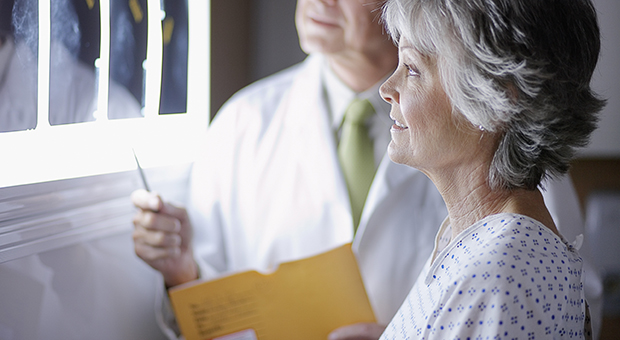The Medical Minute: Well-woman visits an important tool in health prevention

Women everywhere can rejoice about guidelines that came out last year recommending Pap smears be done only every three or five years instead of annually for those with normal screening results.
Of course, that doesn't mean you should cancel your annual well-woman appointment.
Dr. Holly Thomas, an OB-GYN specialist based out of Penn State Hershey Medical Group –Camp Hill, says it's still important to come in for an annual breast and pelvic exam, and to discuss health maintenance issues.
Depending on her age and where a woman falls in her reproductive years, those health maintenance issues might include any number of topics important to maintain health and prevent illness.
Teen years: Have discussions about healthy diet and activity, STD counseling, the Gardisil vaccine for prevention of HPV (the leading cause of cervical cancer) and any contraceptive needs.
20s: Continue the conversation about healthy diet and activity levels, STD counseling, contraceptive needs and pre-conception counseling. Pap smears begin at age 21, and 26 is the last recommended year to receive the Gardisil vaccine for HPV.
30s: Pap smears should continue once every five years for women who get HPV screening at the same time. Without the HPV screen, they should be done every three years.
“Researchers figured out that HPV is the cause agent for many problems, including cervical cancer, so we know that if there are no issues with HPV, a woman is not likely to have those problems,” Thomas said. “It takes many years to develop pre-cancerous changes, so if you are coming in for your regular annual visits, we can get things figured out before you have problems.”
This is also the stage of life when family planning discussions take place.
40s: Doctors recommend annual or bi-annual mammograms, as well as cholesterol and diabetes screenings, based on family history and risk factors.
50s: Menopause and hormone replacement therapy are issues for women in this decade of life. At age 50, mammograms increase to once a year. Women should also schedule a colonoscopy to screen for colon cancer. Depending on risk factors, a colonoscopy may only need to be done every 10 years.
[embed?] Visit our Health Information Library to take a free menopause assessment and get practical suggestions for handling any symptoms you may have and for reducing the health risks associated with menopause.
60s: In addition to the annual mammogram, women in this stage of life should get a bone density screening every other year, starting at age 65 to check for osteoporosis. The good news is that once you hit 65, if your Pap smears have remained normal, you no longer need to have them done for screening purposes.
Thomas said the most important thing for women of any age is to schedule an annual well-woman exam. “Just getting to a doctor and doing that for yourself can detect early problems we can clear up if they are caught and treated appropriately,” she said. “It decreases your risk for many long-term diseases.”
Healthcare reform laws have now made it possible for all women – whether they have health insurance coverage or not – to schedule an annual preventative exam at no cost. It's just about making it a priority. “Usually women are the care providers who are doing for everyone else,” Thomas said. “It's important to take time for you to get checked.”
The Medical Minute is a weekly health news feature brought to you by Penn State Milton S. Hershey Medical Center. Articles feature the expertise of Penn State Hershey faculty physicians and staff, and are designed to offer timely, relevant health information of interest to a broad audience.
If you're having trouble accessing this content, or would like it in another format, please email Penn State Health Marketing & Communications.
